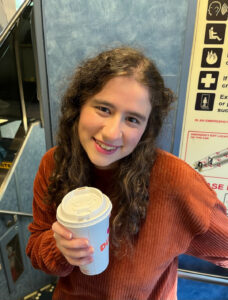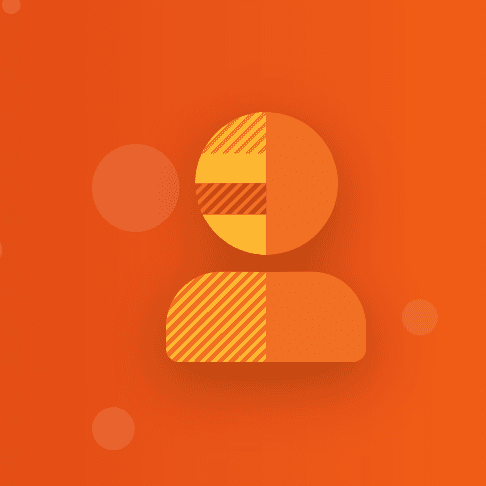Bella doesn’t know how it started, but genetics has fascinated her since she was little.

“I don’t know what triggered it; it just appealed to me,” said Bella, a 22-year-old college student with a passion for biology.
For Bella, genetics is like a giant puzzle, with scientists still trying to piece it together to reveal something about us as humans or why some people get sick, and others don’t.
During the pandemic, she devoured details of how scientists used a small piece of messenger RNA, mRNA, to create a vaccine that would produce an immune response and antibodies against COVID-19. She also contemplates what might be possible in the future; as most people know, certain genetic variants can dramatically increase one’s risk for a disease. But Bella likes to imagine discovering genetic variants that might do the opposite and protect one against disease.
“There’s still so much more to discover,” she said.
A Gift of Knowledge
She soon learned that the same was true about her own genetics. Her mom gifted her a 23andMe Health + Ancestry kit for Christmas one year. Bella thought it was a perfect choice.
“It’s really easy to use and super detailed,” she said.
She was interested in her ancestry because she never knew much about her family tree. It turns out that she’s Turkish, Iranian and Italian. She was also interested in her health reports. She opted in to view the reports, went through a short tutorial, and opened up her reports, including her Cystic Fibrosis Carrier Status Report.*
“I found out I was a carrier of cystic fibrosis,” Bella said.
What it Means to Be a Carrier
Being a carrier does not typically impact your health, and it’s not unusual; depending on ethnicity, between one in 25 and one in 100 people in the United States are carriers for cystic fibrosis. But there is a chance that if you are a carrier and your partner is a carrier, you could have a child with cystic fibrosis. P
eople with cystic fibrosis inherit variants in the CFTR gene from both parents. It is relatively rare; about 35,000 people in the United States have cystic fibrosis, according to the CDC. It’s a very serious condition affecting breathing and digestion. There is no cure, but new treatments have helped people with the disease live longer.
Learning that she was a carrier initially was a big surprise and a little scary. But it triggered some essential family conversations.
Planning Ahead
Bella talked to her mom and then contacted her dad to find out if there was any family history of cystic fibrosis. Then she spoke to her older brother and then a cousin. She thought this would be important information for them to know since they might be considering having children.
Her mom told her she was glad she used 23andMe.
“’Now you know,’” Bella’s mom told her.
Knowing meant she could plan ahead if she decided to have children. It would be essential to know if her partner was also a carrier.
“Knowledge is power!” Bella said more than once.
She continues to stress the importance of genetic testing and planning for the future.
Learn More
23andMe Health & Ancestry, 23andMe+ Premium, and 23andMe+ Total Health customers can all learn about their carrier status here.
Not yet a customer? Find out more about all that 23andMe offers here.
Note:
*The 23andMe PGS test uses qualitative genotyping to detect select clinically relevant variants in the genomic DNA of adults to report carrier status and reporting and interpreting genetic health risks. The relevance of each report may vary based on ethnicity.
Our carrier status reports can be used to determine carrier status but cannot determine if you have two copies of any genetic variant. These carrier reports are not intended to tell you anything about your risk for developing a disease in the future, the health of your fetus, or your newborn child’s risk of developing a particular disease later in life. We provide a single report for certain conditions that includes information on carrier status and genetic health risk.
The Cystic Fibrosis Carrier Status report is indicated for detecting 29 variants in the CFTR gene and is most relevant for people of Ashkenazi Jewish, European, and Hispanic/Latino descent.




